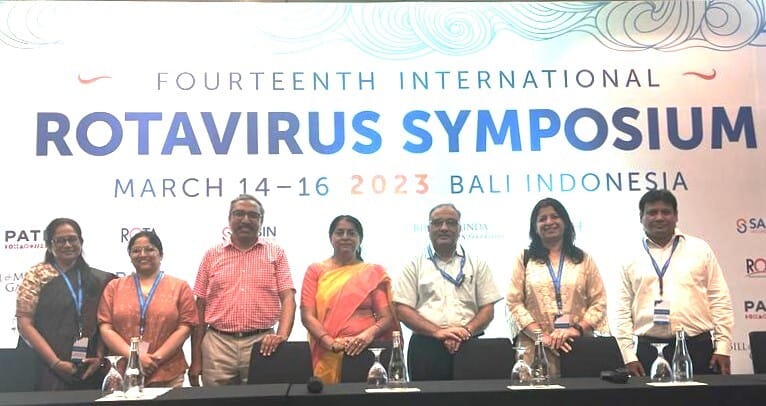This website uses cookies so that we can provide you with the best user experience possible. Cookie information is stored in your browser and performs functions such as recognizing you when you return to our website and helping our team to understand which sections of the website you find most interesting and useful.
“Catching-Up” and Building Stronger Immunization Programs
For more than 200 years, families and communities have entrusted vaccines to protect their loved ones. Vaccination helps children around the world lead healthy lives, but declining coverage since the COVID-19 pandemic is leaving millions of people at risk of preventable diseases.
In 2021, 18 million children did not receive any dose of even the most basic childhood vaccines. This World Immunization Week’s theme, “The Big Catch-Up” focuses on making up progress lost since the pandemic to ensure no child misses life-saving vaccines. This year, we recommit to both strengthening the foundations of strong routine immunization programs and leveraging new approaches to overcome persistent challenges.
Taking Stock: Learning From the COVID-19 Pandemic
Since its emergence, we have been at the forefront of the global COVID-19 response, including vaccine introduction. We are supporting countries in Africa, the Caribbean, and Southeast Asia to ensure smooth introductions, effective supply chain systems, trained providers delivering services at facilities and in communities, and targeted communications to build vaccine confidence and acceptance. JSI leverages lessons, innovations, and energy from the COVID-19 efforts to renew and continue focus on building stronger health systems, including for immunization.
Women Delivering COVID-19 Vaccines in India’s Most Remote and Crowded Communities
Vaccine hesitancy and limited service access are two of the main barriers to vaccinating marginalized and vulnerable populations in India against COVID-19. The MOMENTUM Routine Immunization Transformation and Equity project works with local organizations to help national and state governments reach these communities. Auxiliary nurses and midwives in Punjab and Nagaland helped the project administer over 1.5 million doses by dispelling myths and administering the vaccine in their respective states.
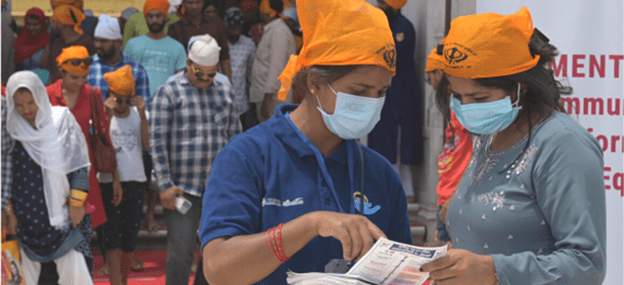
Creating New Norms in Ghana with Human-Centered Design
As countries including Ghana continue to examine if and how to integrate COVID-19 vaccination into their routine immunization systems, they will need to establish norms for identifying and reaching target populations. Whether for routine immunization or COVID-19 vaccination, including community members in planning processes to understand their concerns and meet their needs is critical to the design of more effective programming.
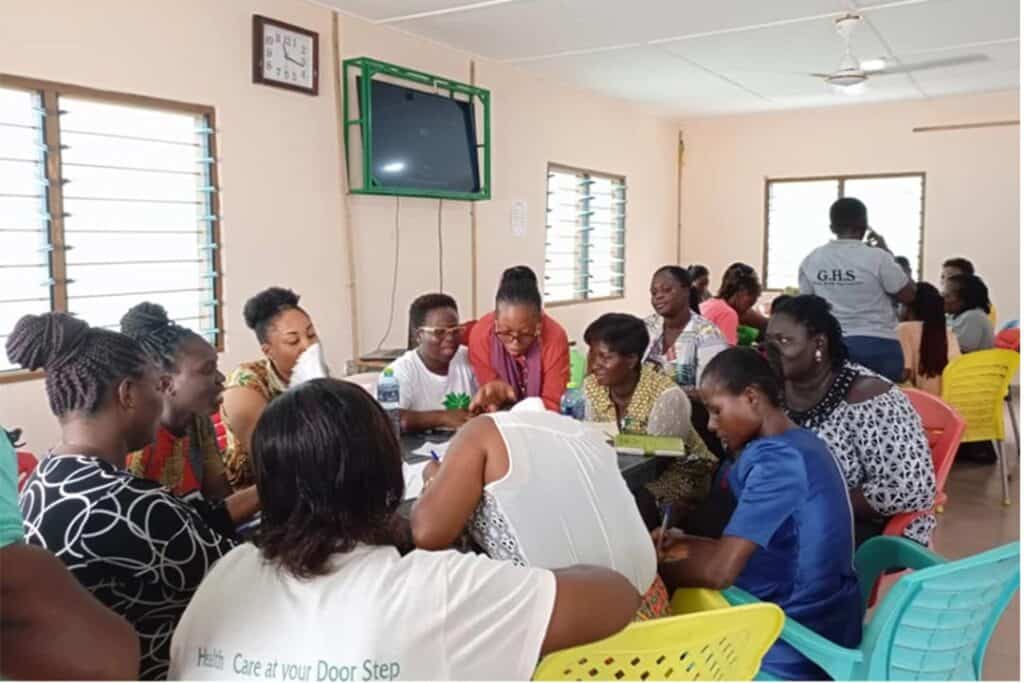
How the COVID-19 Response is Strengthening the Cold Chain in Niger
As more vaccines become available, there is an increased need for close monitoring and a maintenance system to ensure that cold chain equipment is available and functioning properly. This case study illustrates how the MOMENTUM Routine Immunization Transformation and Equity project is supporting Niger in strengthening the cold chain for the COVID-19 vaccine and long-term immunization support.
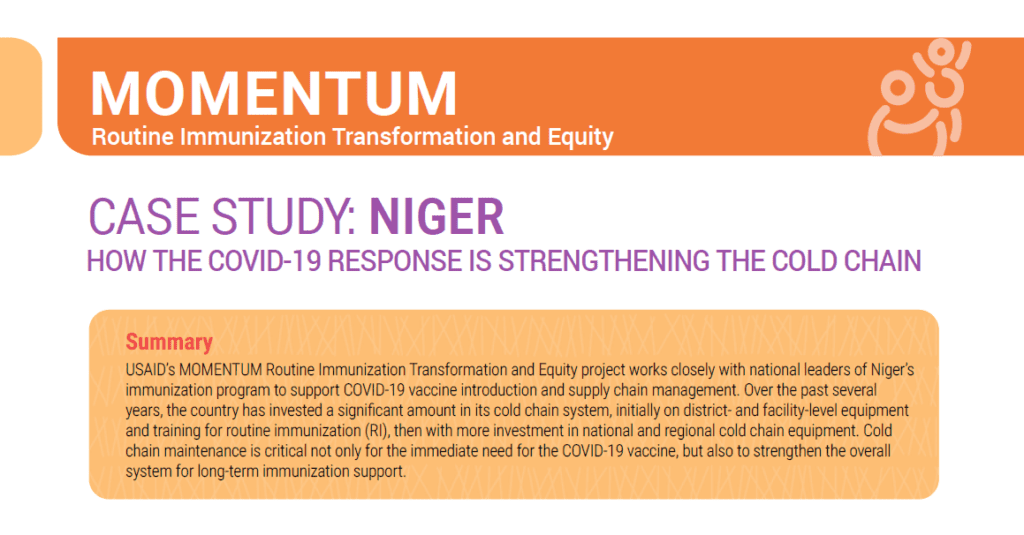
Changing COVID-19 Perceptions in Ethiopia through a Women-led Organization
At the onset of the COVID-19 pandemic, reaching key groups in Ethiopia, in which 80 percent of the population resides in peri-rural areas, was difficult and worsened by ongoing conflict in the north. Through our Last 10 Kilometers project, we partnered with the Network of Ethiopian Women Association to strengthen risk communication and community engagement to thwart the spread of COVID-19.
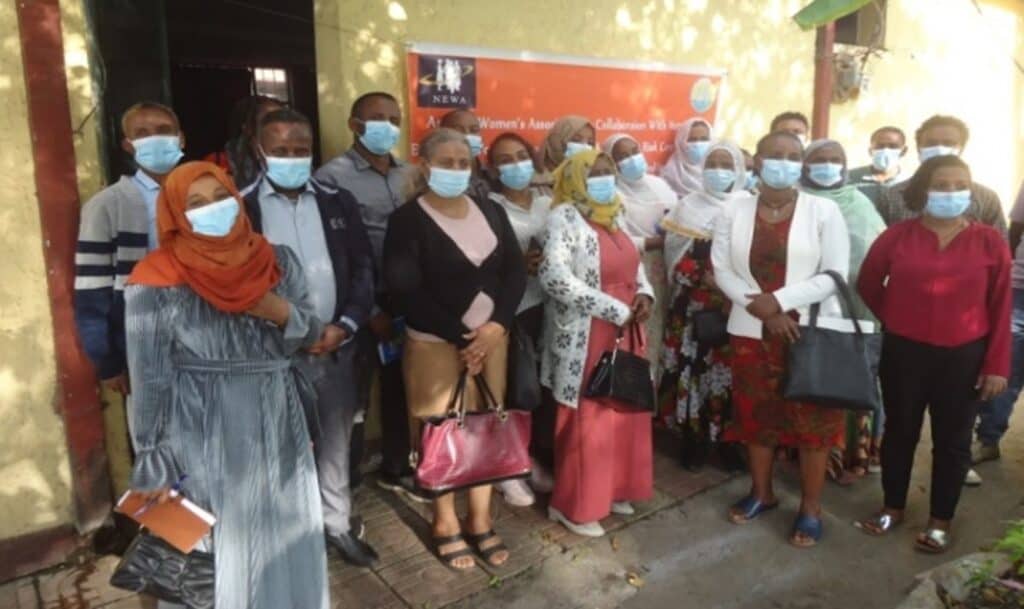
Vaccinating People in Remote Communities in Ghana against COVID-19
Reaching remote areas in Ghana to vaccinate people can be risky. But thanks to our USAID Strengthening the Care Continuum project and local partners, the river-crossing journey is made and people are protected from COVID-19.
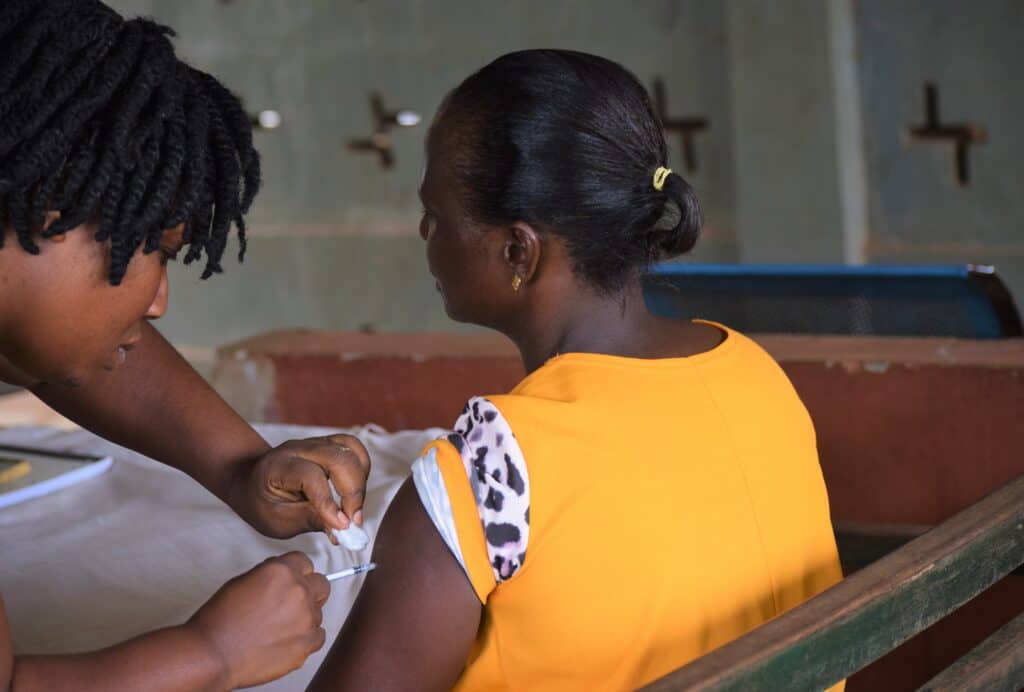
Looking Forward: Harnessing and Maintaining Momentum to Strengthen Systems
The pandemic placed tremendous strain on health systems, including the delivery of essential immunization programs. There is a need not only to fill gaps to reach children we’ve missed, but also to build stronger systems that can sustainably reach all children who are eligible for vaccinations. In strengthening routine immunization systems around the globe, we support countries to provide regular, reliable, and equitable access to and use of immunization services. We partner with country governments to equip local providers with the tools and technical expertise to support and expand their programs and tailor solutions to local needs.
Zambia Reaches 70% Vaccinated
Continued support and community vaccination campaign efforts by the USAID DISCOVER-Health project helped Lusaka, Zambia’s capital city and district, reach its 70% COVID-19 vaccination target in April 2023.
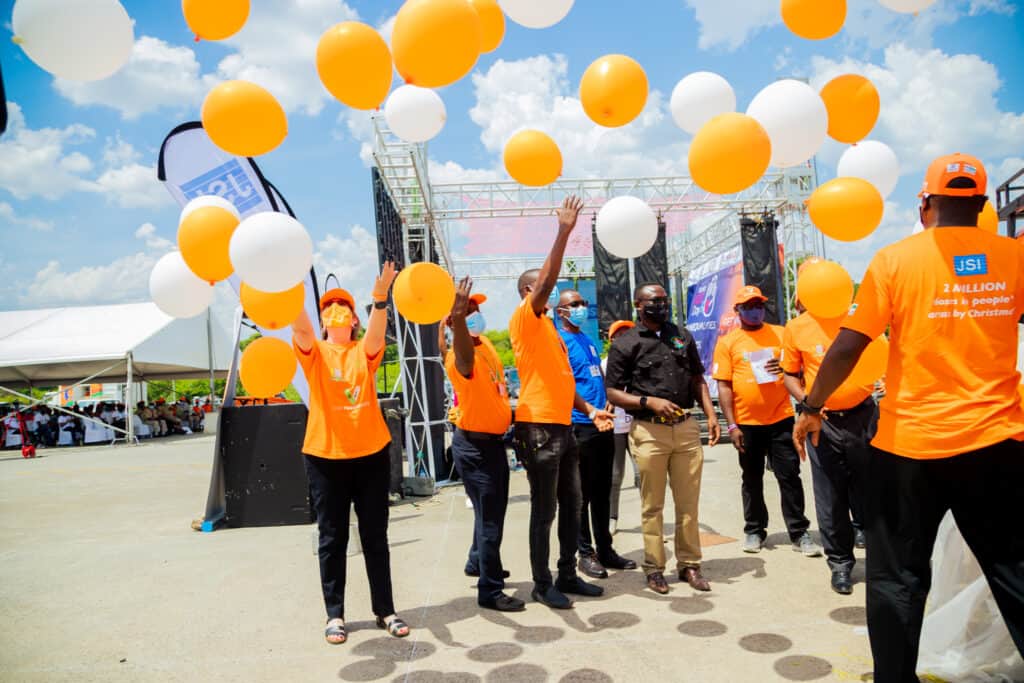
Health Workers and Community Volunteers Improve Routine Immunization Rates in Western Kenya
Charity Kenyani Akoyi is a registered nurse in the Maternal Child Health Department of the Luanda Town Dispensary in Western Kenya. She had worked there for several years when she noticed a significant decrease in the number of fully vaccinated children. With support from the MOMENTUM Routine Immunization Transformation and Equity project, Charity helped organize training and outreach sessions to improve immunization rates and health outcomes in her community.
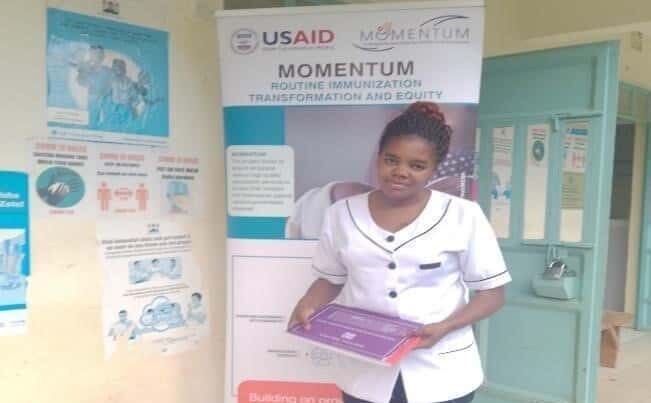
Barcode technology: a game-changer for public health supply chains
Edward Wilson explains why barcodes help ensure vaccine traceability and safety, particularly for lower- and middle-income countries, and why now is the time to employ them.
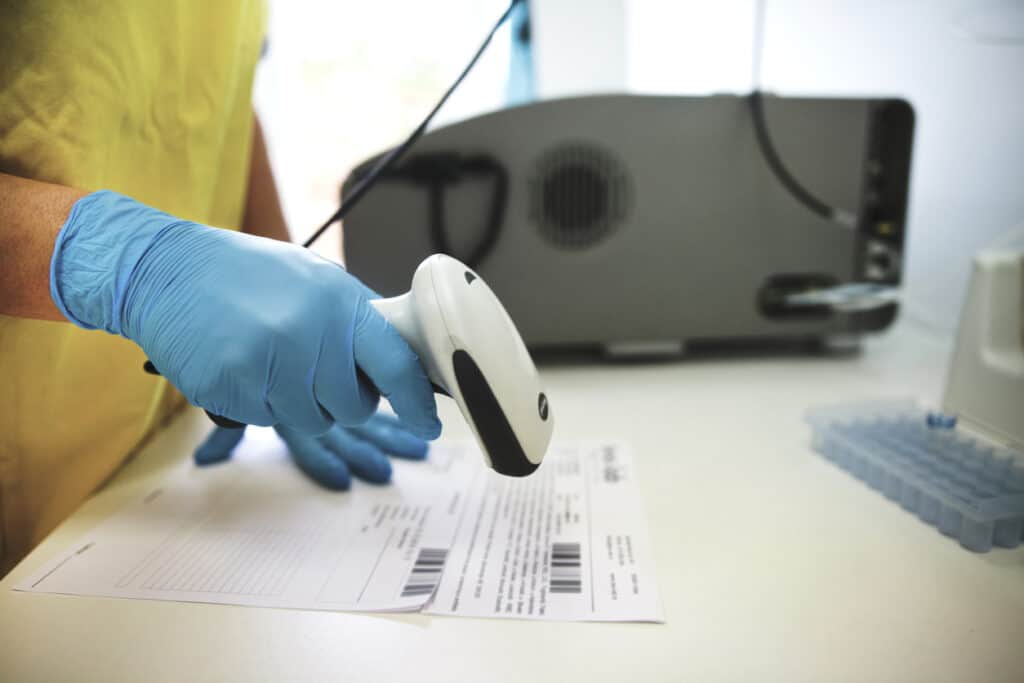
Strengthening Immunization Services through Person-centered Care
Vaccination uptake is influenced by highly nuanced sociocultural, behavioral, and structural factors. It is critical to understand these to identify and reach zero-dose and under-immunized children. Learn more about how person-centered approaches to immunization support the development of community-led, tailored, and sustainable strategies that can reach children everywhere with vaccination services.
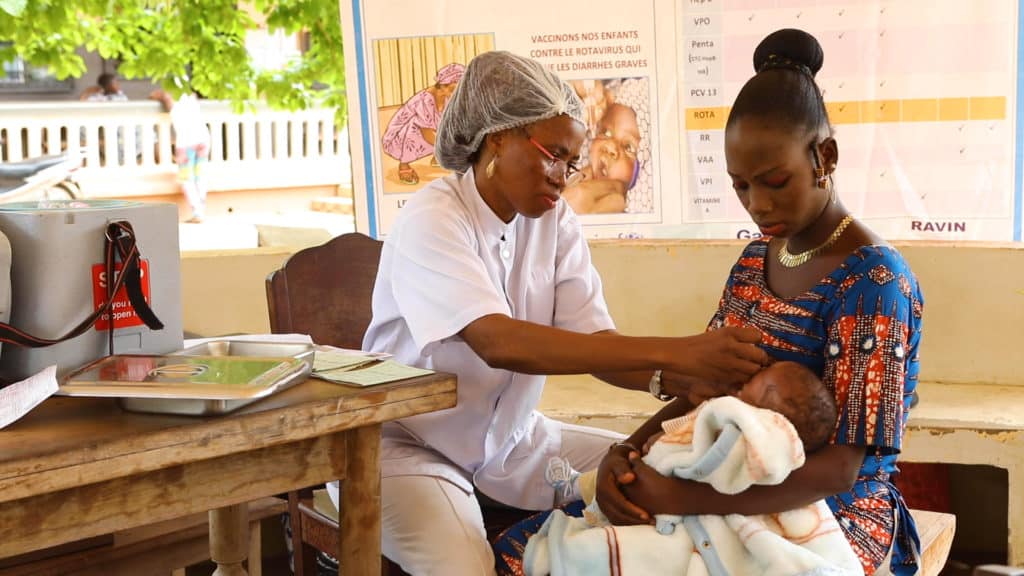
Gavi to Improve Access to Data to Reach Zero-Dose Children
Gavi, the Vaccine Alliance has launched the Zero-Dose Learning Hub to improve how data are used to identify and reach zero-dose children. This global platform will provide technical and operational support to four learning hubs in Bangladesh, Mali, Nigeria, and Uganda. The platform will disseminate learning across immunization stakeholders at the community, national, regional, and global levels.
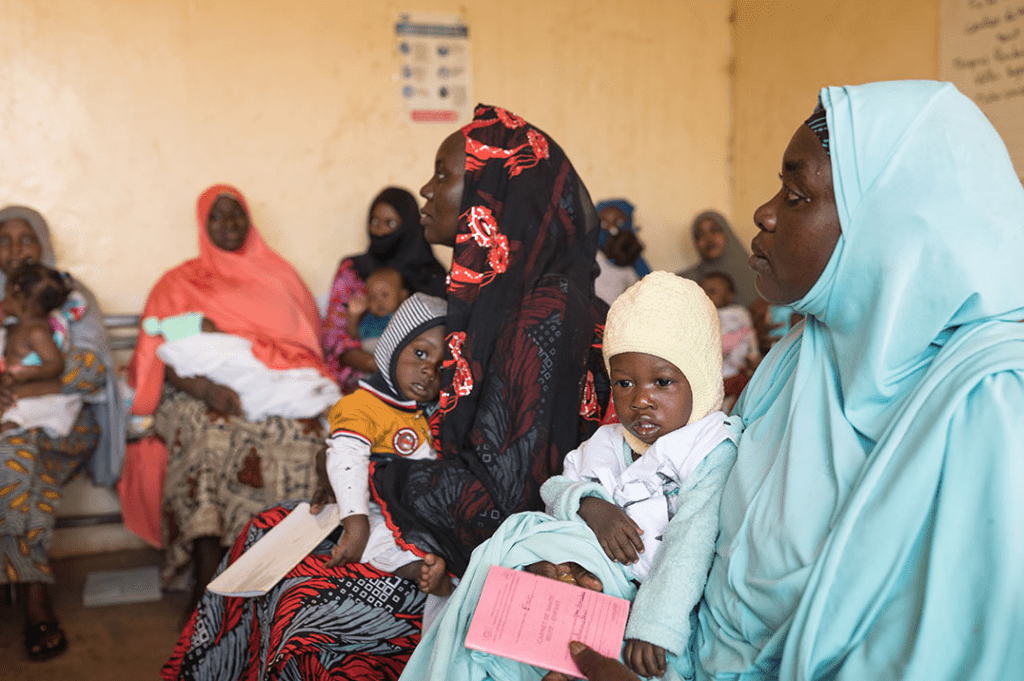
Building Vaccine Confidence in Massachusetts
The Vaccine Confidence Project in Massachusetts works to ensure that all residents are protected against vaccine-preventable diseases. The project, which works in collaboration with the Massachusetts Adult Immunization Coalition, the MA Chapter of the American Academy of Pediatrics, and MA DPH Immunization Division, just released its latest newsletter, which has resources for increasing vaccine confidence.

From Idea to Institution: The Behavioral Science Center in Nepal
Behavioral science can help us understand the social and behavioral barriers to immunization. In Nepal, JSI, Kathmandu University School of Medical Sciences, and UNICEF Nepal established the Behavioral Science Center to sustainably strengthen local capacity in applied behavioral science, with an initial focus on immunization.

Supporting Haiti through a Cholera Dashboard
The USAID-funded Country Health Information Systems and Data Use (CHISU) program has been supporting Haiti’s MSPP to integrate service availability statistics into the Carte Sanitaire, the online national health data dashboard. The dashboard now shows cholera treatment centers throughout the country on a map and has information on number of available beds, communities served, and opportunities for more beds and support.
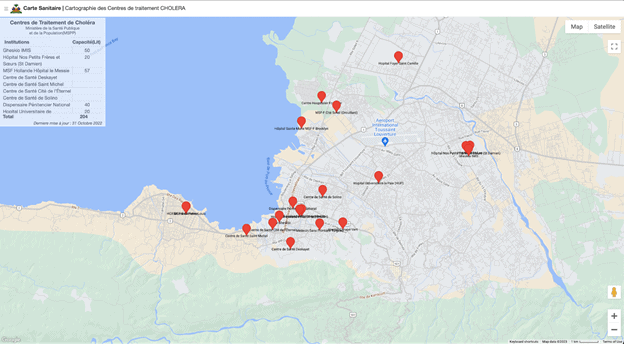
Closing the Gaps in Urban Immunization in India
The Urban Routine Immunization project continues to build on its past two years of work to close urban immunization gaps in India. In recognition of World Immunization Week, the project has launched the quarterly URZA (Urban Routine ImmuniZAtion Bulletin) Issue 1, Vol 1, 2023. The inaugural issue focuses on partnerships and highlights the collective action needed to protect people from vaccine-preventable diseases.
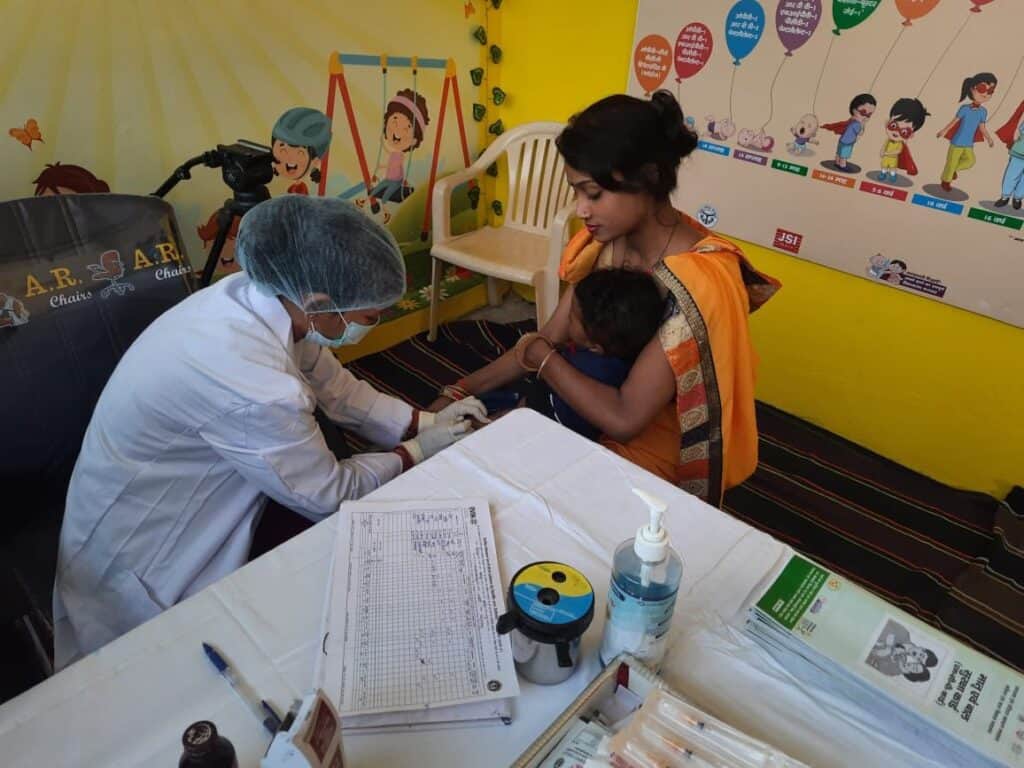
Podcast: Using Mobile Solutions to Increase Immunization Coverage in Yemen
In Yemen, the USAID-funded Systems, Health, and Resiliency Project (SHARP) is using mobile solutions to increase immunization coverage for children. The project recently piloted an SMS reminder system and electronic immunization registry to share vaccination information with community midwives, health facilities, and parents. In this Voices of Public Health podcast episode, Areej Banaja, SHARP senior health facility manager and Omar Al-Gundaid, SHARP communication manager, talk about these efforts and conveying the importance of childhood vaccinations.
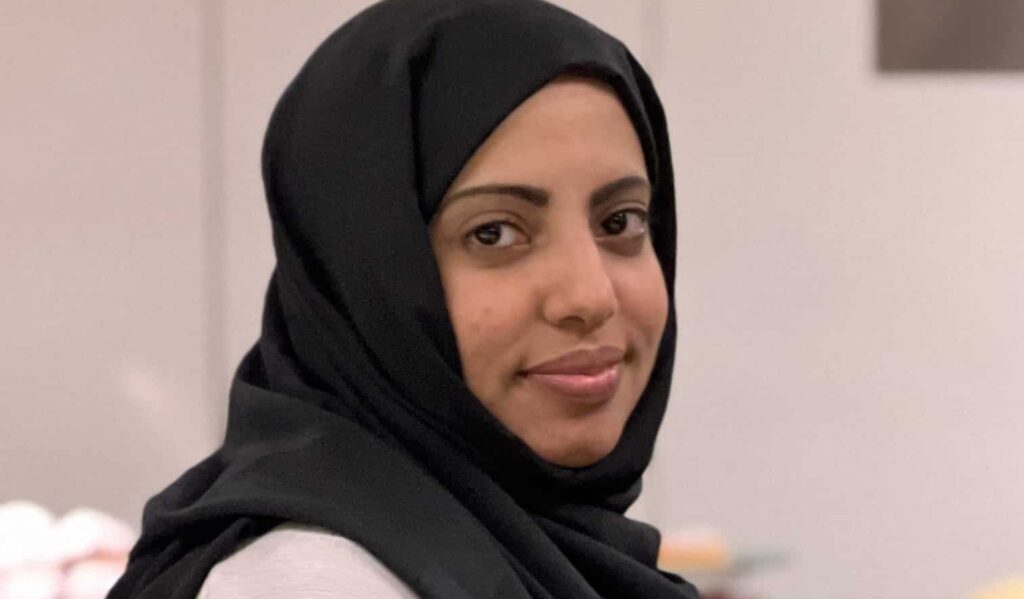
The Power of Community-based Networks: How strategies applied for COVID-19 vaccination in India can improve routine immunization coverage
COVID-19 vaccine uptake among India’s tribal population has been low, partly due to misconceptions about the vaccine and barriers to access. However, with the support of USAID MOMENTUM Routine Immunization Transformation and Equity, local NGOs and the government are working with community networks and leaders to dispel myths and improve vaccine access. This approach is also being applied to improve routine immunization based on USAID’s new framework, which outlines strategies to enhance maternal and child survival in the next decade by improving the quality, equity, and coverage of primary health care services, including vaccinating the hardest-to-reach populations.
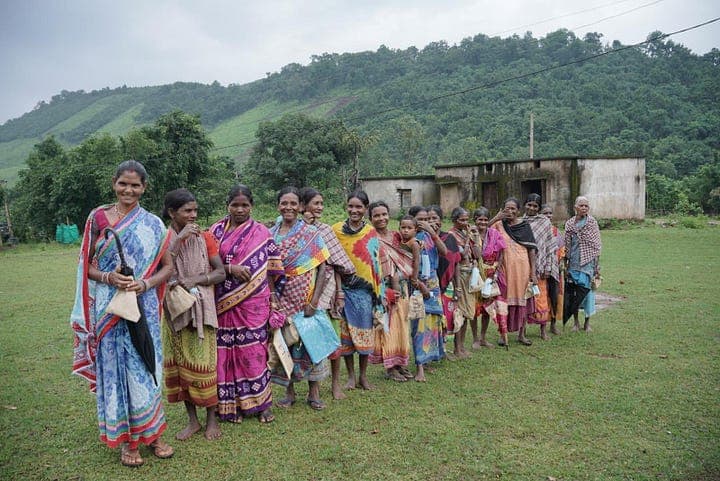
Overcoming Obstacles to Increase Equity for Immunization
MOMENTUM Routine Immunization Transformation and Equity applies best practices and explores innovations to increase equitable immunization coverage in USAID-supported countries. It builds countries’ capacity to identify and remove barriers to reaching zero-dose and under-immunized children and older populations with life-saving vaccines and other integrated health services, including rebuilding immunization systems damaged by the pandemic. This infographic showcases some of the project’s major achievements to date.
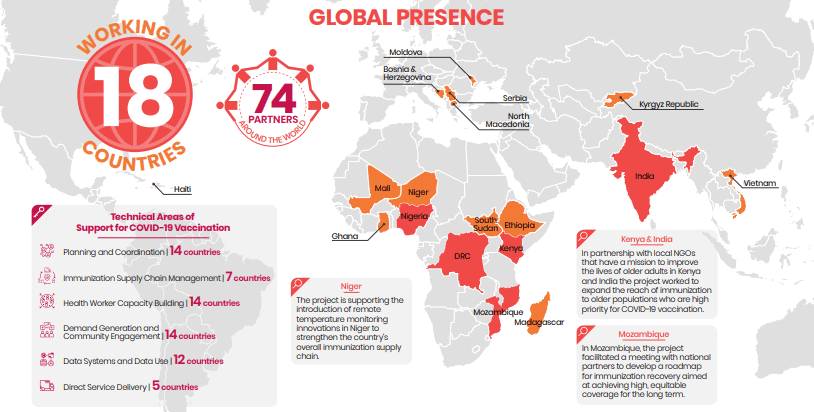
Podcast: Making Cold Chain Maintenance Smart
The vaccine cold chain relies on a global network of refrigeration units and carriers to keep vaccines at the right temperature from production to administration. In this podcast, Amos Chweya and Wendy Prosser from JSI’s Immunization Center chat about the challenges of maintaining cold chain equipment and share some “crazy” ideas to do it differently. By making cold chain maintenance smart, we can ensure that vaccines remain safe and effective throughout the distribution process and end up in the arms of those who need them. Find out more about how JSI is strengthening sustainable immunization programs and transforming public health supply chains.
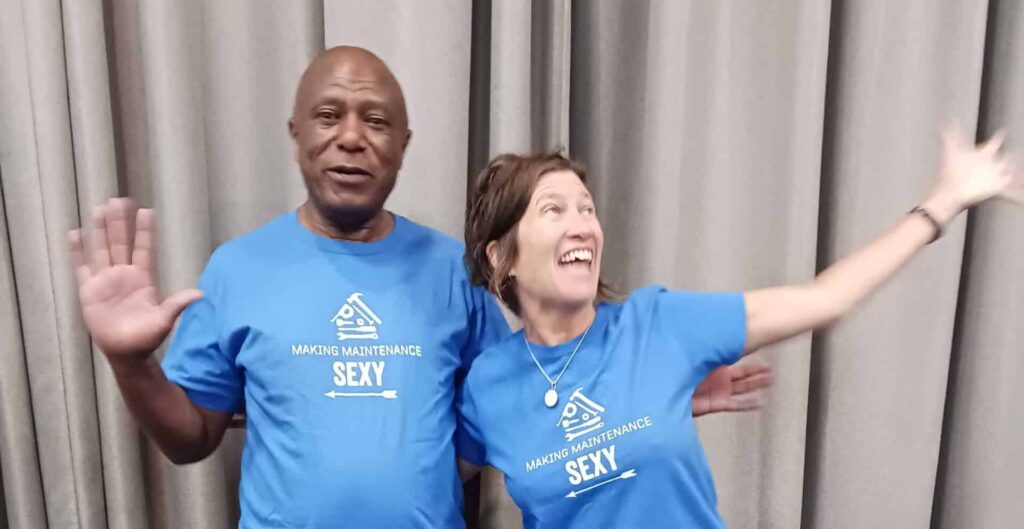
Newsletter: Collaboration with Immunization Partners to Reach Every Child in India
The Immunization Technical Support Unit (ITSU) serves as a think tank for India’s Immunization Division, Ministry of Health & Family Welfare. India’s collaboration with immunization partners to ensure no child is left unvaccinated is the focus of the latest edition of the ITSU created quarterly newsletter.

Blog: Using Cell Phone Calendars to Increase Childhood Vaccinations in the DRC
Several factors contribute to under-vaccinated and zero-dose children. Communities in low-income urban areas often have poor access to and low use of health care services, which can result in delays or departures from the standard childhood immunization schedule. In response, JSI teams in the Democratic Republic of Congo, in collaboration with the Expanded Programme on Immunisation and community health workers, developed a program to remind people of vaccination appointments using the calendar app available on all cell phones.
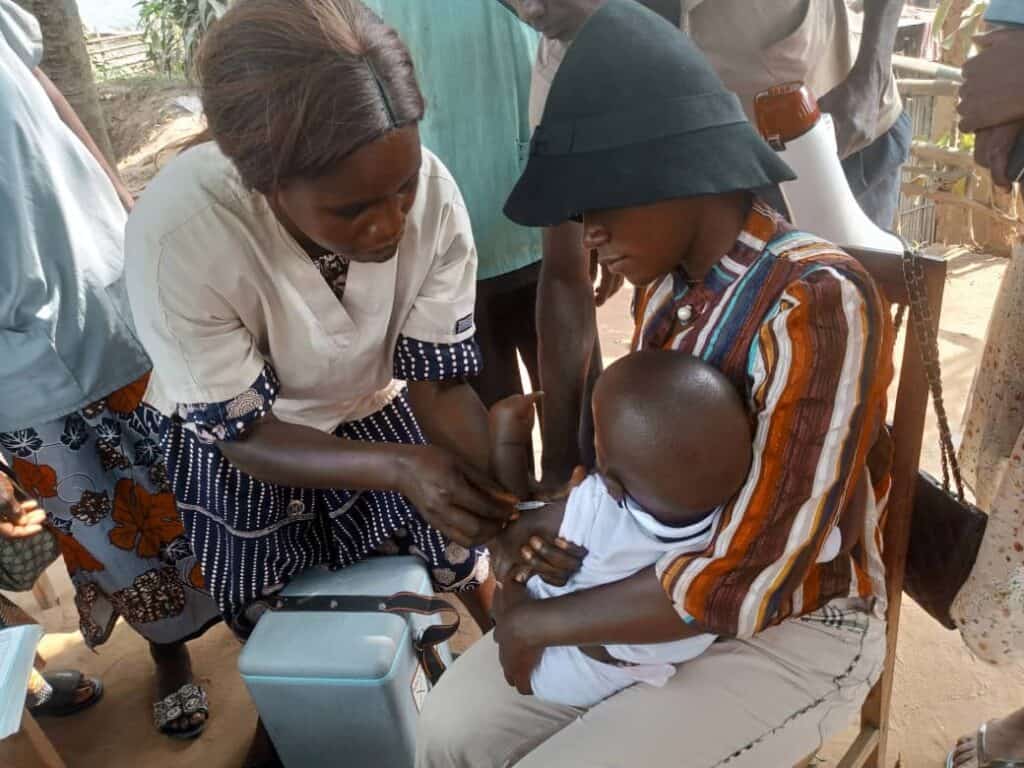
Making vaccines more accessible: Reflections from the 14th International Rotavirus Symposium
A new blog discusses key takeaways from our JSI Private Limited (JSIPL) team at the 14th International Rotavirus Symposium in Bali, Indonesia in March. They joined over 300 participants from 35 countries to focus on the latest in vaccine manufacturing and results from new rotavirus vaccine trials, studies, and public health surveillance across the globe; enablers and barriers to vaccine introduction; vaccine policy and implementation; advances in immunology and virology; and vaccine efficacy and safety. Staff from the Ministry of Health and Family Welfare, Government of India and JSIPL participated and presented their experiences on rotavirus introduction in India.
